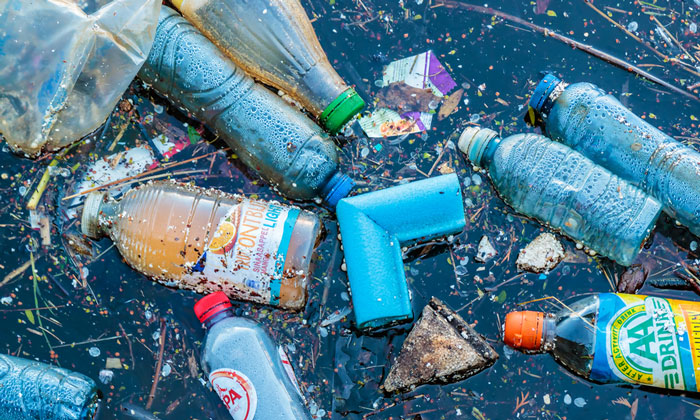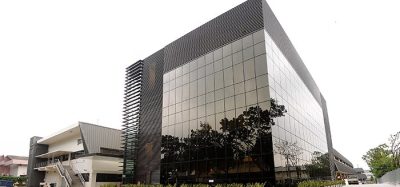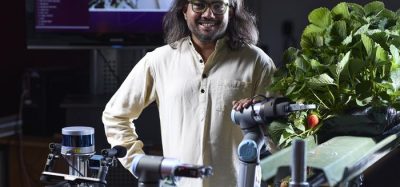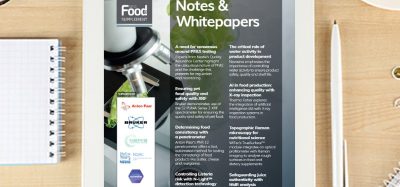UK Science Minister announces £20 million plastics research fund
- Like
- Digg
- Del
- Tumblr
- VKontakte
- Buffer
- Love This
- Odnoklassniki
- Meneame
- Blogger
- Amazon
- Yahoo Mail
- Gmail
- AOL
- Newsvine
- HackerNews
- Evernote
- MySpace
- Mail.ru
- Viadeo
- Line
- Comments
- Yummly
- SMS
- Viber
- Telegram
- Subscribe
- Skype
- Facebook Messenger
- Kakao
- LiveJournal
- Yammer
- Edgar
- Fintel
- Mix
- Instapaper
- Copy Link
Posted: 21 June 2018 | George Smith (New Food) | No comments yet
UK businesses can apply for a share of up to £4 million to develop new solutions to reduce persistent plastics entering our environment.


PLASTIC OCEANS: Plastic pollution in our seas has become more prevalent in the media this year
A new £20 million fund that aims to explore new ideas and innovations that can bring changes in the UK’s plastics manufacturing and consumption patterns has been announced by Science Minister, Sam Gyimah.
The Plastics and Research Innovation Fund (PRIF) aims to engage Britain’s best scientists and innovators to help move the country towards more circular economic and sustainable approaches to plastics.
It will be managed by UK Research and Innovation (UKRI) and delivered via the Engineering and Physical Sciences Research Council (EPSRC), Innovate UK, and the Natural Environment Research Council (NERC).
Science Minister Sam Gyimah said: “There’s been incredible progress in making people aware of the danger that plastic can do to our environment and our oceans.
“Today we are announcing a £20 million fund for our best scientists and researchers through UKRI to come up with new technology and also new plastics that do not harm the environment so much. This means moving from our current model of make, use and dispose to a new model where you use, you reuse and you recycle.”
UK Research and Innovation Chief Executive, Professor Sir Mark Walport added: “It is imperative we change our use and misuse of plastic.
“Although plastics have transformed the way we live and play an important role in many aspects of modern life, we are increasingly aware of the devastating damage plastic waste can inflict on the environment and people’s health. T
“his fund will help to create the range of new approaches and alternatives needed to rapidly reverse the impact that our use of plastics is having on the planet.”
The fund will have three parts which will involve:
- Leadership and Knowledge Exchange: UK Circular Plastics Network funding ~ £2 million
- Research: Plastics ‘Creativity’ funding ~ £8 million
- Business led research and development: Plastics ‘Innovation’ funding ~ £10 million
UKRI will work together with the sustainability experts WRAP to network and connect this fund with initiatives across business, government and the research and innovation community, to encourage knowledge exchange, and to identify future research and innovation priorities to enable the move to a circular plastics economy.
The fund will seek to deliver strategic networking and research that will coordinate existing knowledge across the UK; catalysing new ideas and rapid solutions across the research and innovation landscape.
It will support the polymer, packaging, retail and waste sectors as well as local government responsible for waste collection.
Professor Duncan Wingham, UKRI’s Lead for the fund and Executive Chair of the Natural Environment Research Council, said: “This Fund will bring the strength of UKRI’s entire portfolio, from environment to technology to business to behaviour and regulation, to bear on this pressing and very widely recognised problem.
“In addition, it will draw on the expertise of partners who have been working in the waste reduction and recycling arena for some time.”
UKRI brings together the UK Research Councils, Innovate UK and Research England into a single organisation to create the best environment for research and innovation to flourish.
UK businesses can apply for a share of up to £4 million to develop new solutions to reduce persistent plastics entering our environment: Further information on the competition.
Up to £8 million is available for institutional awards for up to 18 months to research organisations to bridge the gaps between UK Research and Innovation research disciplines and respond creatively to the challenge of creating new circular economy approaches to eliminating future plastic waste.
Related topics
Research & development, Supply chain, Sustainability, Technology & Innovation
Related organisations
Engineering and Physical Sciences Research Council (EPSRC), Innovate UK, Natural Environment Research Council (NERC), UK Research and Innovation (UKRI)
Related regions
Related people
Professor Duncan Wingham, Professor Mark Walport, Sam Gyimah








